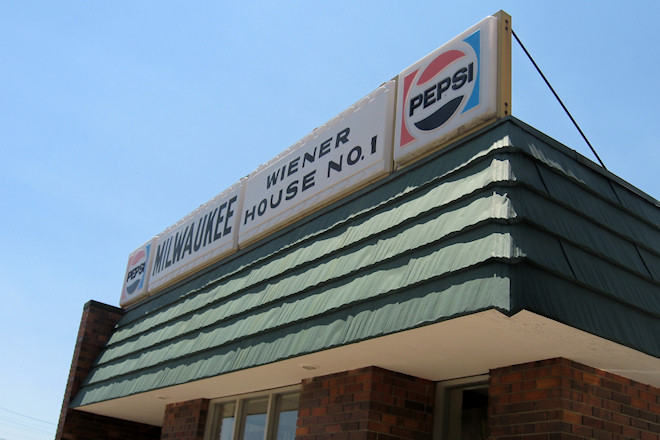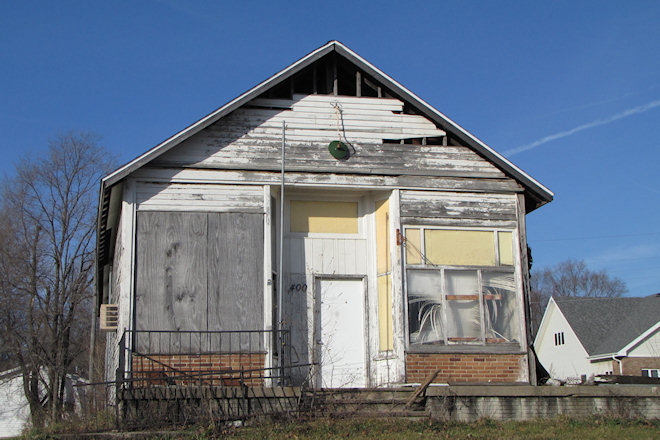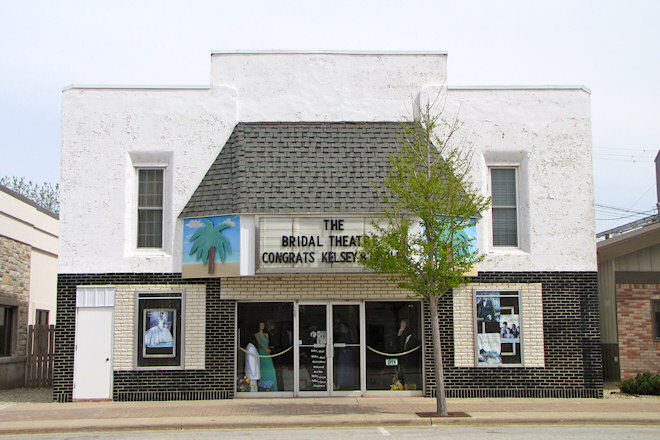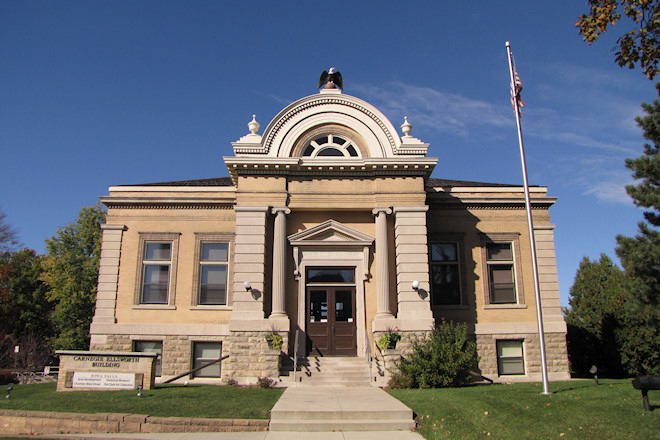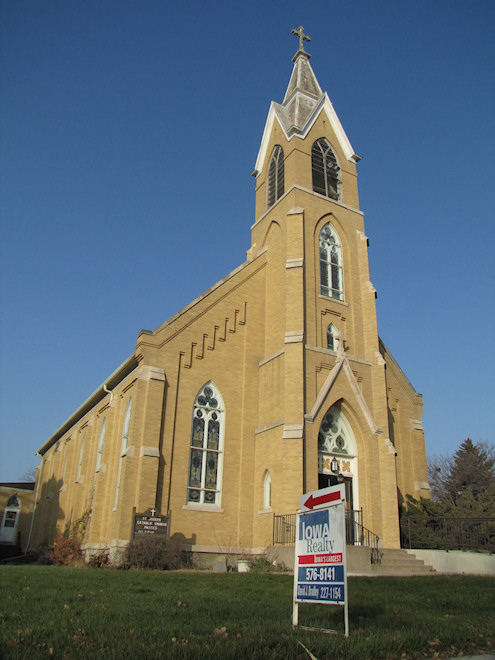
The interior of St. Joseph’s Catholic Church in Duncombe is partially torn apart, with complete demolition scheduled for completion this spring. The decision to demolish the 101-year-old yellow brick church comes after two years on the market without a buyer. The church was one of three Webster County Catholic churches to close in November 2008 due to a lack of priests to serve the area; final mass was held November 16, 2008.
The Fort Dodge Messenger News reports the church congregation was made up of around 70 people at time of closure. The predicted shortage of priests has resulted in a long-term plan to close several additional Webster County churches by 2019, including those in Clare, Dayton, and Moorland.
